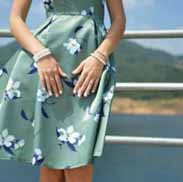World History Chapter 30 Section 1 Vocabulary – Flashcards
Unlock all answers in this set
Unlock answersquestion
proletariat
answer
In Marxist theory, the group of workers who would overthrow the czar and come to rule Russia.
question
Bolsheviks
answer
A group of revolutionary Russian Marxists who took control of Russia's government in November 1917.
question
Vladimir Lenin
answer
Born Vladimir Ilyich Ulyanov, later changed his last name. He was the ruler of the Bolshevik Party. He escaped czarist imprisonment. When he returned, he fought the White Army, making him the ruler of Russia. He gave the peasants land, total control of factories to the workers, organized NEP, and encouraged foreign investment. He died in 1924. He was succeeded by Stalin.
question
Rasputin
answer
A mysterious, "holy man". He claimed to have magical healing powers. He lessened the symptoms of the Czar's son, so as a reward, Czarina Alexandra gave him power over Russia. He wasn't an effective leader: He gave government roles to his friends and opposed reforms. He was killed (drowned) by a group of nobles.
question
provisional govermnet
answer
A temporary government.
question
soviet
answer
One of the local representative councils formed in Russia after the downfall of Czar Nicholas II.
question
Communist Party
answer
A political party practicing the ideas of Karl Marx and V. I. Lenin; originally the Russian Bolshevik Party.
question
Joseph Stalin
answer
Successor of Lenin. He was cold, harsh, and impersonal. He rivalled with Trotsky to be ruler over Russia after Lenin. He progressively gained peoples' favor, working his way up the government roles' ladder. Soon, he became dictator of Russia, sending Trotsky into exile. Stalin means man of steel.
question
pogrom
answer
Organized violence against Jews. A lot were organized by Alexander III.
question
Alexander II
answer
Czar of Russia until his assassination in 1881. He wanted to reform Russia.
question
Alexander III
answer
Czar of Russia from 1881 to 1894. Son of Alexander II. He halted all the reforms his father began and returned to autocracy. He ruled Russia using harsh measures. He imposed strict censorship. He made Russian the official language, other minority languages were outlawed. He sent his secret police carefully watch schools, forced teachers to write reports about every student. He oppressed minority groups in Russia, especially the Jews.
question
Nicholas II
answer
Czar of Russia from 1894 to 1917, when he stepped down. He was married to Czarina Alexandra. He was an autocratic ruler just like his father, Alexander III. After he stepped down, he and his family were killed.
question
Czarina Alexandra
answer
The wife of Nicholas II. When Nicholas II moved to the war front, she was in charge of Russia. Instead of putting her trust in Nicholas's chief advisers, she gave all the ruling power to Rasputin after he healed her son, Alexis.
question
Mensheviks
answer
Group of moderate revolutionaries, who wanted a broad base of popular support for the revolution.
question
Russo-Japanese War
answer
A war in 1904 between Russia and Japan. Russia and Japan were competing for Korea and Manchuria. After making an agreement that they both wouldn't attack those places, Russia broke the pact. Japan attacked Russia at Port Arthur, Manchuria, defeating the Russians.
question
Bloody Sunday
answer
January 22, 1905. A group of 200,000 workers and their families marched to the Winter Palace with a petition. They asked Nicholas II for better working conditions, more personal freedom, and an elected national legislature. In return, Nicholas II asked his guards to fire into the crowd. About 1,000 people were injured, a couple hundred were killed.
question
Alexander Kerensky
answer
The leader of the provisional government. He lost everyone's favor when he decided that Russia would continue fighting in the war. He was arrested by the Bolshevik Red Guards in 1917.
question
Leon Trotsky
answer
Leader of the Red Army. He fought Stalin for control of Russia. Once Stalin became dictator of Russia, Stalin sent him into exile.
question
White Army
answer
Army composed of czar supporters, democracy supporters, and socialists who didn't like Lenin's type of socialism. Very different people, but all had one common goal: to defeat the Red Army. They were supported by the US: were sent arms, but it was to no use. This army lost the war.
question
Red Army
answer
Bolsheviks' army. Fought the White Army from 1918 - 1920. Lead by Leon Trotsky. This army won the war.
question
March Revolution
answer
Revolution in March 1917. Began with women textile workers in Petrograd led a citywide strike because of bread and fuel shortages. 200,000 workers supported them. Nicholas's soldiers even changed sides and supported the revolutionaries.
question
November Revolution
answer
Revolution in November 1917. Bolshevik Red Guards attacked the Winter Palace. They arrested Kerensky and other members of the provisional government.
question
Bolshevik Red Guards
answer
The group of armed workers who stormed the Winter Palace and arrested Alexander Kerensky, along with the other government members.
question
Trans-Siberian Railway
answer
The world's longest continuous rail line. They began building it in 1891 - during the period in Russia where industrialization began - and finished in 1916.



